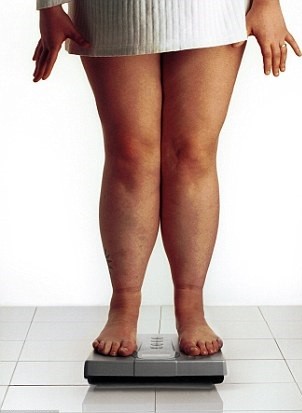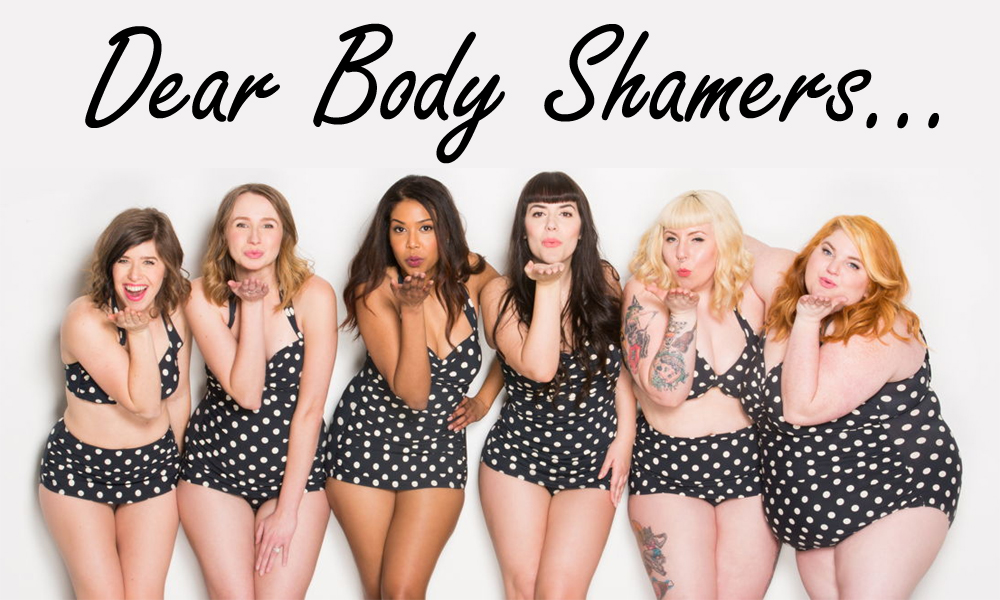“မဂၤလာပါ” ဆိုတာကေတာ့ ျမန္မာျပည္ရဲ႕ “Hello” ပါ။ ဒါေပမဲ့ ေန႔စဥ္မွာေတာ့ “ေနေကာင္းလား”၊” မေတြ႔ရတာ ၾကာၿပီေနာ္”လို႔ေျပာၾကၿပီး စိတ္အညစ္ရဆံုးစကားကေတာ့ “ဝလာတယ္ေနာ္” ပါ။ ျမန္မာ့ဓေလ့မွာေတာ့ ဝ လာတယ္ဆိုတာကေတာ့ စိတ္ခ်မ္းသာကိုယ္က်န္းမာတယ္လို႔ သေဘာသက္ေရာက္ေပမယ့္ အေျပာခံရတဲ့ လူေတြရဲ႕ မ်က္နာေတြကေတာ့ သြားကိုက္ေနသလို စိတ္မသက္မသာျဖစ္ေလ့ရိွပါတယ္။
“Mingalabar” is our official greeting, equivalent of English’s “Hello”. However in our daily lives, we say “Are you well?’, “Long time no see” and the dreaded “You have become fat”. Saying “you are fat” is not exactly an insult as it implies you are well fed due to prosperity. Yet why does the receiver of such greet always look like they are having a toothache?
အမ်ိဳးသမီးတစ္ဦး ဒါမွမဟုတ္ အမ်ိဳးသားတစ္ဦးကို Body shaming လုပ္တတ္တဲ့အက်င့္က လူမႈကြန္ရက္မွာ လူေျပာမ်ားေနတဲ့ topic တစ္ခုပါ။ ဒါကလည္း ျမန္မာျပည္ရဲ႕ facebook ကြန္ရက္မွာ cyberbullying ေတြ အရမ္းေပါမ်ားလာတာနဲ႔လည္း ဆိုင္ပါတယ္။ အထူးသျဖင့္ အြန္လိုင္းေပၚကနာမည္ႀကီးေနသူေတြဆိုရင္ သူတို႔ရဲ႕႐ုပ္ပိုင္းဆိုင္ရာေတြကို တိုက္ခိုက္ေဝဖန္မႈေတြ အရမ္းခံရပါတယ္။
Body shaming has become a huge topic of the social media sphere, Facebook, in Myanmar lately with people calling out on such shameful behaviors. This is also linked to the rise of cyberbullying on Facebook in Myanmar where popular personnel is subjected to abuses based on their looks.

တကယ္ေတာ့ Body shaming က ျမန္မာႏိုင္ငံကလူေတြၾကားမွာ အရင္တည္းကရိွေနပါတယ္။ ေနာက္ကြယ္မွာ အခ်င္းခ်င္းေျပာေနၾကတဲ့ စကားလံုးေတြ ၊ လမ္းေပၚမွာျဖတ္သြားရင္ လွမ္းေအာ္ခံရတဲ့ စကားလံုးေတြက Online ေပၚေရာက္တဲ့အခ်ိန္မွာေတာ့ လယ္ကြင္းျပင္ေပၚဆင္လမ္းေလွ်ာက္သလို ထင္းထင္းလင္းလင္းႀကီးေပၚလာပါတယ္။
Body shaming has always existed in our culture and what Social Media did was to expose this ugly behavior in such a way that we cannot deny anymore.
ဒီေကာက္ႏုတ္ခ်က္ကို ခ်ဲ႕ကားေျပာတာလို႔ ယူဆရင္ မိသားစုထဲ ၊သူငယ္ခ်င္းထဲမွာ သာမန္ထပ္ ကိုယ္အေလးအခ်ိန္လြန္ေနလို႔ “ဖတ္တီး” လို႔ နာမည္တြင္ေနတဲ့ လူဘယ္ႏွစ္ေယာက္ရိွလဲျပန္ေတြးၾကည့္ပါ။ “မွန္ေၾကာင္” ၊ “ဖတ္တီး” ၊ “သြားေခါ” ၊ “ဝက္ဆီပိတ္” ၊ “အ႐ိုးေခ်ာက္” ၊ “ပဲလန္းေႁမြသီး” ဆိုတဲ့ စကားလံုးေတြကေတာ့ ယဥ္ေက်းတယ္ဆိုတဲ့ ျမန္မာျပည္ လူမႈအသိန္းအဝိုင္းထဲမွာ လက္လႊတ္စပယ္ေခၚေဝၚေနၾကတာပါ။
If this statement seems like an exaggeration, please think of how many of our overweight friends or family members that are nicknamed, “Fatty”. Words like “Skeleton”, “Beanpole”, “Pig Fat” and ‘Bucktooth” are tossed around casually in our society prized for its politeness.

လမ္းေပၚမွာျဖတ္သြားရင္ “ဘယ္လိုေတြစားလို႔ ဝက္နဲ႔တူေနရတာလဲ” ဆိုၿပီး လွမ္းေအာ္ေျပာတာေတြရိွပါတယ္။ ဒါကလည္း စေနာက္ေျပာတာ။ စိတ္ဆိုးရင္ ကိုယ့္အမွားပဲျဖစ္တယ္။ ဒါေပမဲ့ ေနာက္ကြယ္ေတြမွာဆိုရင္ေတာ့ စကားလံုးေတြက ဒီထပ္ပို ပိုၾကမ္းလာပါတယ္။
Strangers on the street will shout at you to question what you are eating that is making you look like a pig. These are all in jest, of course. If you get mad, you are a spoilsport. This turns malicious behind closed doors though.
“အမယ္ေလး သူေပါင္ေတြက ဒီေလာက္ႀကီးတာကို စကပ္အတိုဝတ္ေသးတယ္” ဆိုတဲ့ အတင္းေျပာဆိုမႈေတြကို ေမာ္ဒယ္မဟုတ္ဘဲ အတိုဝတ္တဲ့မိန္းကေလးေတြ အျမဲအေျပာခံရတာပါ။ အကယ္၍ စူပါေမာ္ဒယ္လို ကိုယ္လံုးရိွခဲ့ရင္လည္း ဒူးေခါင္းႀကီးက မည္းေနတာပဲဆိုၿပီး ေျပာၾကျပန္တယ္။ Social Media မွာၾကေတာ့ ဒီလိုေျပာဆိုမႈေတြကို အားလံုးက ျမင္ရပါတယ္။ တစိမ္းေတြက သင့္ရဲ႕ကိုယ္လံုးအခ်ိဳးအစားကို ေဝဖန္အၾကံေပးမႈေတြလုပ္ၾကတယ္။ အျပင္မွာၾကေတာ့ online မွာေျပာတာထပ္ အေျပာနည္းနည္းေလွ်ာ့ေပမယ့္လည္း ေဝဖန္ဆဲပါ။
“Can you believe she wears such skirts when her legs are so fat?” is the kind of gossip girls endure for daring to bare when not looking like a supermodel. If the girl has a supermodel size, the insult will be that her knees are black. On Social Media, you get the direct insult for the world to see. Strangers will comment on your body shape and unsolicited advice. In the outside world, they will still come up and comment about your body shape but in watered down version.

ဒါဆို Body shaming က ျမန္မာႏိုင္ငံမွာ အဲ့ဒီေလာက္ဆိုးလို႔လားလို႔ ေမးခြန္းထုတ္ၾကည့္မယ္။ စကားလံုးေတြက လူကိုေသြးထြက္ေအာင္ မလုပ္ႏိုင္ေပမယ့္ နာက်င္ေအာင္ေတာ့ လုပ္ႏိုင္စြမ္းရိွပါတယ္။ လူတစ္ေယာက္ရဲ႕ခႏၶာကိုယ္ဟာ ပတ္ဝန္းက်င္ရဲ႕ေဝဖန္ပိုင္းၾကားမႈေတြခံဖို႔ ေမြးဖြားလာတာမဟုတ္ပါဘူး။ ဒါေပမဲ့ မေ၀ဖန္လို႔မရဘူးလားဆိုေတာ့ ေျပာလို႔ရပါတယ္။ အျပဳသေဘာေဆာင္တဲ့ ေ၀ဖန္မႈေတြကိုေတာ့ ေထာက္ျပႏိုင္ပါတယ္။ ေထာက္လည္း ေထာက္ျပေပးၾကပါတယ္။ “ဟယ္ သူဒီေလာက္ဝေနတာ က်န္းမာေရးအတြက္မေကာင္းဘူးေလ။ ေျပာရမွာေပါ့” လ႔ို တုန္႔ျပန္မႈကို ဒီလူရဲ႕ က်န္းမာေရး ၊ ေနာက္ေၾကာင္းရာဇ၀င္ ၊ ဝင္ေငြ ၊ စိတ္ပိုင္းဆိုင္ရာေတြကို အတြင္းေစ့သိရဲ႕လားလို႔ ျပန္ေမးျပရေစ။ လူတိုင္းကိုယ္စီမွာ မျမင္ရတဲ့ ဒုကၡကိုယ္စီရိွၾကတဲ့အတြက္ အခ်င္းခ်င္းက႐ုဏာ၊ ေမတၱာတရားထားသင့္ပါတယ္။
What is so bad about body shaming anyway? Bear in mind that our bodies are not for public commentary. You could argue, “Well, she is so fat. It isn’t good for her health and she needs to know it!” It is a lovely sentiment but are you aware of the person’s medical background, financial status, living arrangement, and even mental state? Everyone has their own struggles that are invisible to us and we should have the compassion to each other.
ျမန္မာျပည္လိုယဥ္ေက်းမႈကို အေလးထားတဲ့ တိုင္းျပည္မွာ ဘာလို႔ body shaming ေတြ အရမ္းမ်ားတာလဲလို႔ ကၽြန္မ စဥ္းစားၾကည့္ဖူးပါတယ္။ တကယ္တမ္းအေျဖကေတာ့ ကိုယ့္ရဲ႕အျပဳအမူ ၊ အေျပာအဆိုကို ကိုယ္ျပန္ၾကည့္ဖို႔ပဲလိုတာပါ။ တစ္စိမ္းေတြ ကိုယ့္ရဲ႕ခႏၶာကိုယ္ကို ေဝဖန္ရင္ မႀကိဳက္တာကို ျပန္ေျပာၾကေပမယ့္ ကိုယ့္ရဲ႕ ခင္မင္ရင္းႏွီးတဲ့လူေတြေျပာရင္ ခ်စ္စႏိုးစတာဆိုၿပီး ဘာမွျပန္မေျပာတတ္ၾကတာ မ်ားပါတယ္။ ဒါက ျပသနာရဲ႕အရင္းအျမစ္ပါ။
We all collectively wonder aloud why our society is so rude to body shame other people. However, we need to look closely at ourselves. While we voice out our disapproval at strangers for commenting on our physical appearance, we brush it off when they came from our loved ones. That is where the root of the problem.

ကိုယ္ခ်စ္တဲ့လူေတြရဲ႕စကားကို ပိုမိုအေလးထားတတ္ေတာ့ သူ႔တ႔ိုဆီကလာတဲ့ body shaming က စိတ္ဒဏ္ရာ အနက္ဆံုးပါပဲ။ ၿပီးေတာ့ ကိုယ္ခ်စ္တဲ့သူတစ္ေယာက္ေယာက္ကို “ဝက္မေလး”လို႔ လြယ္လြယ္ေခၚရင္ ကိုယ္မသိတဲ့ တစ္စိမ္းကို “ဟယ္ ဝလိုက္တာ ဝက္လိုပဲ” လို႔ ပါးစပ္က လြယ္လြယ္ထြက္လာမွာပါပဲ။ Social Media မွာ မ်က္နာခ်င္းမဆိုင္ရေတာ့ ပို႐ိုင္းျပတဲ့ေျပာဆိုမႈေတြျဖစ္လာေတာ့တာပဲ။
We usually trust our loved ones and their opinions matter to us. Hence, body shaming comments from our closest people, family members, and good friends are the most damaging to us. And think about it, if you could call your beloved sister little piggy, wouldn’t you feel entitled to call “What a pig” to the passerby who you do not know? And the words can become harsher on social media where you cannot see them face to face.
ကိုယ့္ပတ္၀န္းက်င္ ၊ ကိုယ္ကိုယ္တိုင္ကေန Body shaming ရပ္ခ်င္ရင္ အေကာင္းဆံုးနည္းလမ္းကေတာ့ ကိုယ္ခ်စ္ရတဲ့သူေတြကို ေ၀ဖန္မႈေတြရပ္ၿပီး ကိုယ့္ရဲ႕ခႏၶာကိုယ္ပံုပန္းသ႑ာန္ေတြကို ျပစ္တင္ေျပာဆိုမႈေတြ ရပ္လိုက္ပါ။ ယဥ္ေက်းမႈနဲ႔ ကရုဏာဆိုတာ အိမ္တြင္းကေနပဲ စတင္တာမို႔လို႔ပါ။
Therefore, for the body shaming culture to stop, we need to stop criticizing our own loved ones, stop calling them names based on their body figures. After all, tolerance begins at home.
words by R.E.Saw

